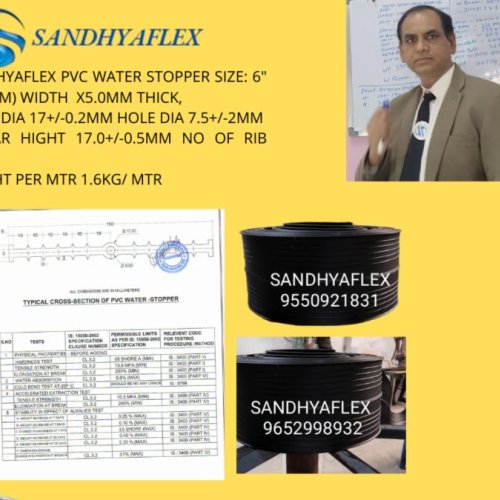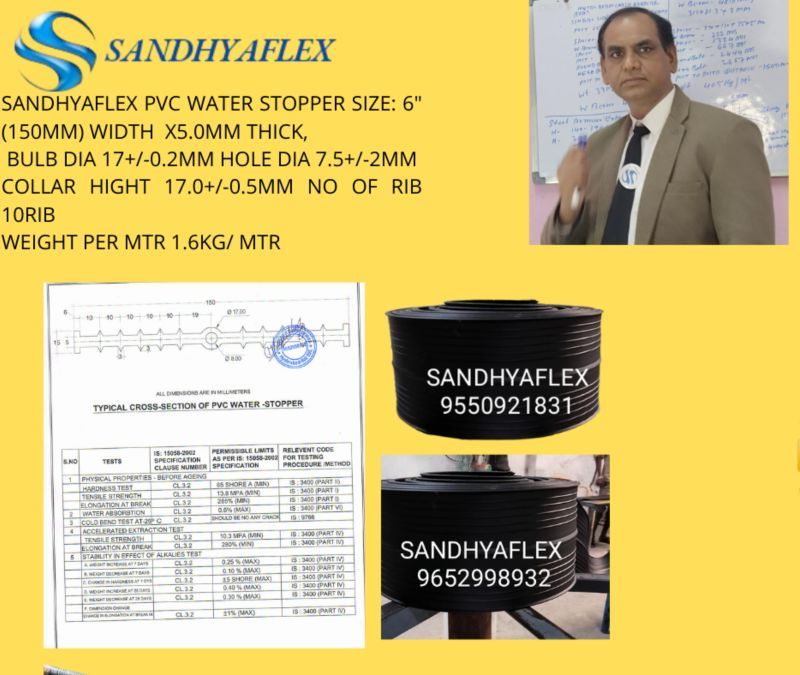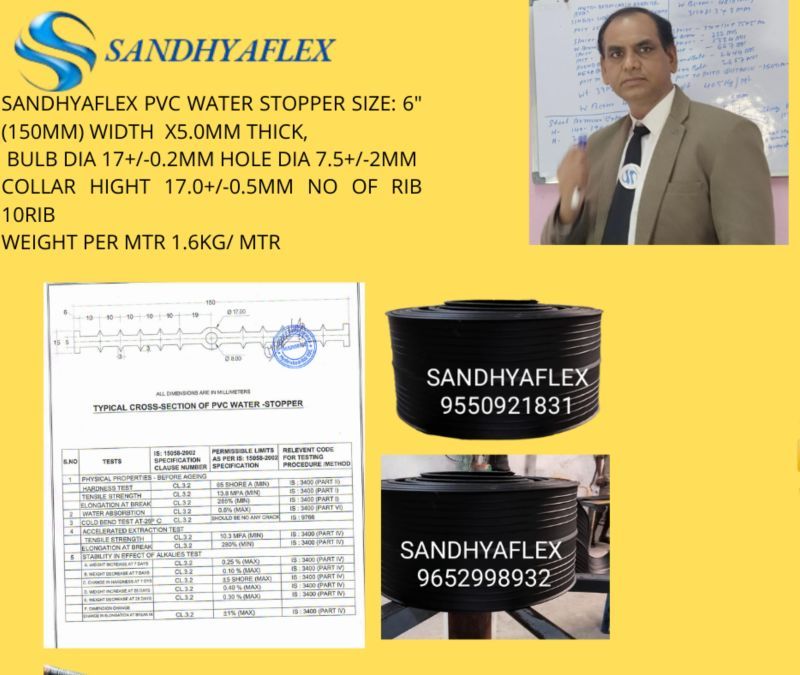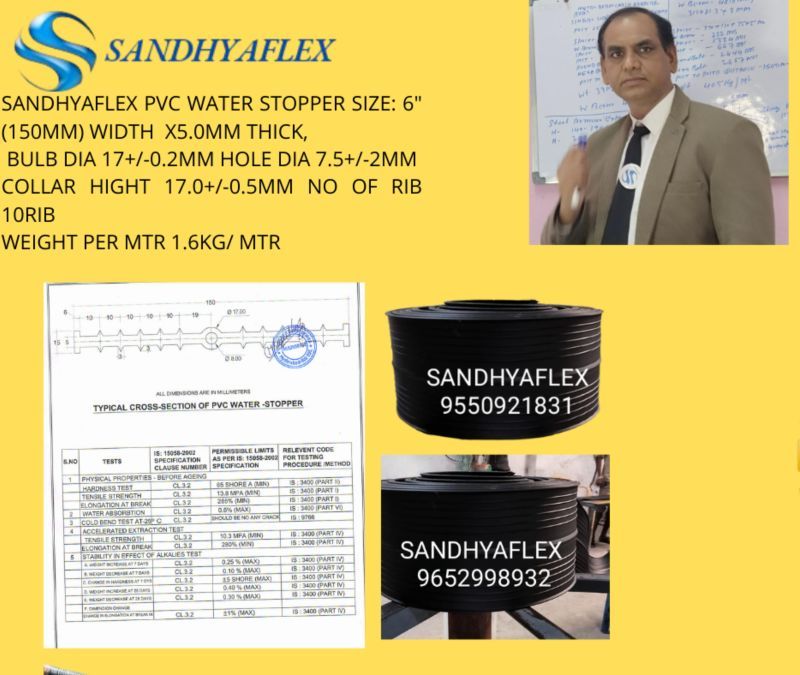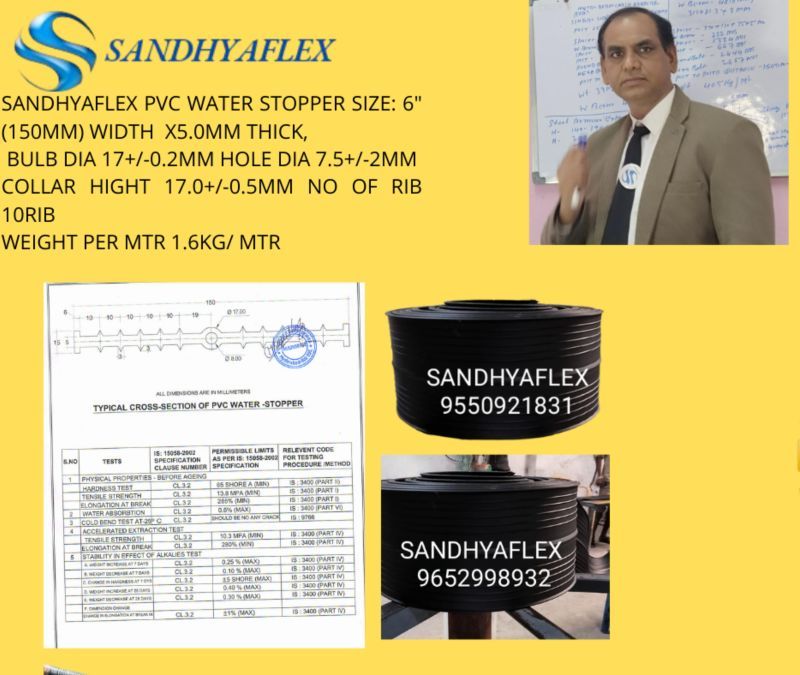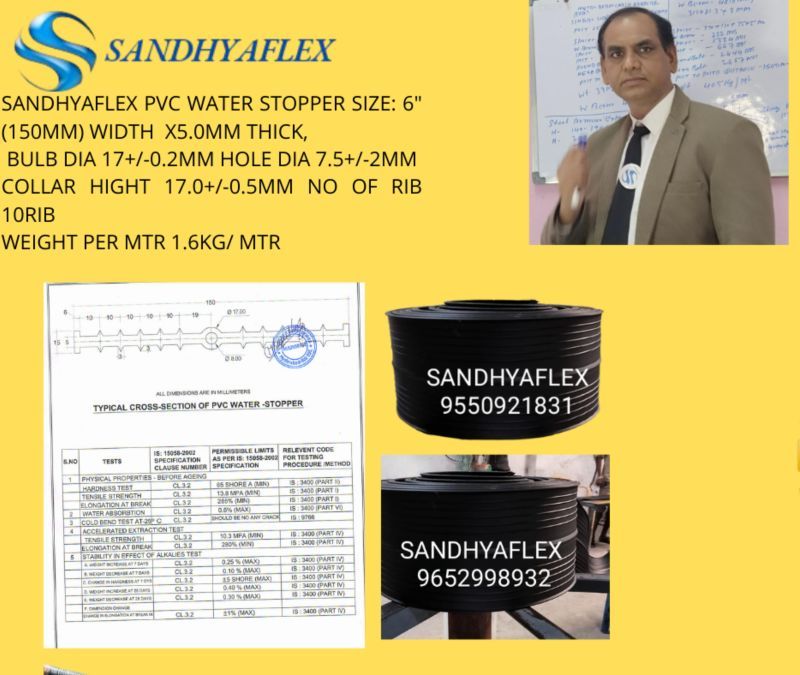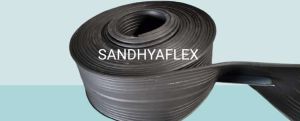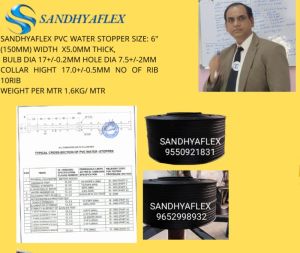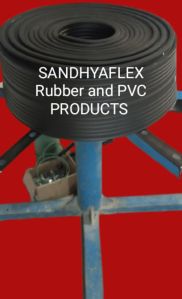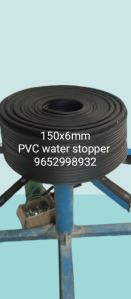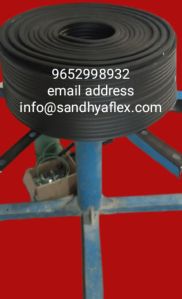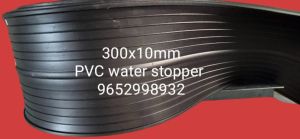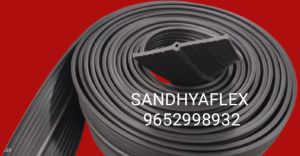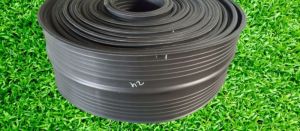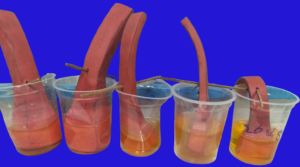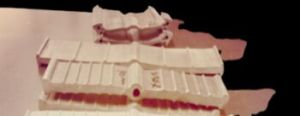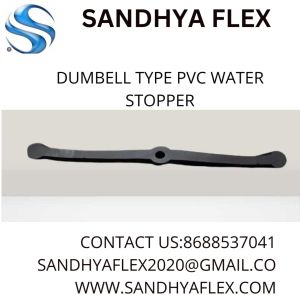-
sandhyaprises@gmail.com -
View Mobile Number
| Business Type | Manufacturer, Exporter, Supplier |
| Condition | New |
| Brand Name | SANDHYAFLEX |
| Material | Pvc |
| Click to view more | |
Product Details
Color
Black
Application
Construction
Length
25-30mtr
Feature
Best Quality, High Quality
Country of Origin
India
Product Code
PVC Water Stopper
Port
Mumbai
Payment Terms
D/A
Delivery Time
2-4days
Packaging Details
Export Packing
Dimension in CBM
PVC Water Stopper with Center Bulb
Each Roll 25Mtr
SR No Dimension Length Width Height CBM Weight kg/Roll
1 150x5mm 0.625 0.625 0.150 0.059 40
2 150x6mm 0.625 0.625 0.150 0.059 45
3 150x8mm 0.625 0.625 0.150 0.059 55
4 200x8mm 0.625 0.625 0.200 0.059 70
5 200x10mm 0.65 0.65 0.200 0.078 80
6 225x5mm 0.625 0.625 0.23 0.090 65
7 225x6mm 0.625 0.625 0.230 0.090 70
8 225x8mm 0.65 0.65 0.230 0.097 90
9 225x10mm 0.65 0.65 0.230 0.097 100
10 240x8mm 0.65 0.650 0.240 0.104 110
11 240x10mm 0.650 0.650 0.240 0.104 125
12 250x8mm 0.675 0.675 0.250 0.114 95
s13 250x10mm 0.675 0.675 0.250 0.114 115
14 300x6mm 0.700 0.700 0.300 0.147 95
15 300x8mm 0.725 0..725 0.300 0.158 115
16 300x10mm 0.750 0.750 0.300 0.169 145
17 300x12mm 0.775 0.775 0.300 0.18 140
18 300x15mm 0.800 0.800 0.300 0.192 160
Kiker Type
19 230x4mm 0.625 0.625 0.230 0.090 67
Dumbbell Type
20 230x8mm 0.650 0.650 0.230 0.097 87
21 230x10mm 0.650 0.650 0.230 0.097 100
Dimension in CBM
PVC Water Stopper with Center Bulb
Each Roll 25Mtr
SR No Dimension Length Width Height CBM Weight kg/Roll
1 150x5mm 0.625 0.625 0.150 0.059 40
2 150x6mm 0.625 0.625 0.150 0.059 45
3 150x8mm 0.625 0.625 0.150 0.059 55
4 200x8mm 0.625 0.625 0.200 0.059 70
5 200x10mm 0.65 0.65 0.200 0.078 80
6 225x5mm 0.625 0.625 0.23 0.090 65
7 225x6mm 0.625 0.625 0.230 0.090 70
8 225x8mm 0.65 0.65 0.230 0.097 90
9 225x10mm 0.65 0.65 0.230 0.097 100
10 240x8mm 0.65 0.650 0.240 0.104 110
11 240x10mm 0.650 0.650 0.240 0.104 125
12 250x8mm 0.675 0.675 0.250 0.114 95
s13 250x10mm 0.675 0.675 0.250 0.114 115
14 300x6mm 0.700 0.700 0.300 0.147 95
15 300x8mm 0.725 0..725 0.300 0.158 115
16 300x10mm 0.750 0.750 0.300 0.169 145
17 300x12mm 0.775 0.775 0.300 0.18 140
18 300x15mm 0.800 0.800 0.300 0.192 160
Kiker Type
19 230x4mm 0.625 0.625 0.230 0.090 67
Dumbbell Type
20 230x8mm 0.650 0.650 0.230 0.097 87
21 230x10mm 0.650 0.650 0.230 0.097 100
A PVC water stopper is a type of sealing material commonly used in construction and civil engineering projects to prevent the flow of water through joints in concrete structures. These water stoppers are made from high-quality PVC (polyvinyl chloride), a durable, flexible material that is resistant to water, chemicals, and temperature fluctuations.
Key Features of PVC Water Stoppers:- Waterproofing: PVC water stoppers are designed to effectively seal joints and cracks, preventing water infiltration and leakage in structures like basements, dams, swimming pools, and tunnels.
- Durability: PVC is resistant to corrosion, which makes the water stopper long-lasting and effective even under harsh conditions.
- Flexibility: The flexibility of PVC allows it to adjust to slight movements in the structure, ensuring the seal remains intact over time.
- Ease of Installation: PVC water stoppers can be easily integrated into the construction process, usually placed in construction joints before pouring the concrete.
- Chemical Resistance: PVC water stoppers are resistant to a wide range of chemicals and can be used in environments where exposure to chemicals is common.
- Construction: Used in concrete joints of foundations, water treatment plants, dams, swimming pools, reservoirs, and tunnels.
- Underground Structures: Effective in sealing joints in underground structures exposed to groundwater.
- Expansion and Contraction: Accommodates the expansion and contraction of concrete structures, maintaining the waterproof seal.
PVC water stoppers come in various shapes, such as U-shaped, T-shaped, or ribbed, depending on the specific requirements of the project. They are available in different sizes to suit different joint widths and water pressure conditions.
Looking for "6" width PVC Water Stopper" ?
Meter
